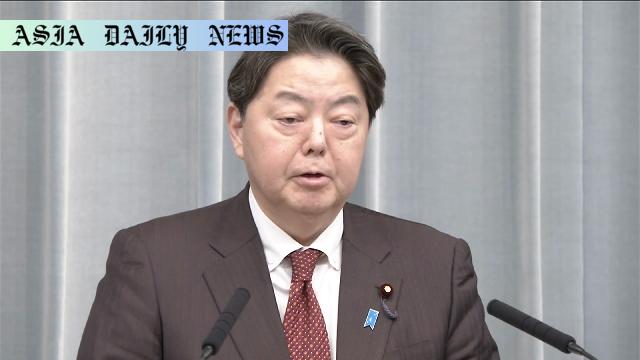student visa: Japan pledges close communication with the US to address concerns over the pause in visa application screenings.
Japan comments on the US pause in student visa application screenings.
Chief Cabinet Secretary avoids speculating without official US updates.
Japan seeks to address citizens’ concerns through close communication.

US Visa Pause Sparks Concerns in Japan
In an unexpected move that has raised widespread concerns, the United States government temporarily halted the screening of new student visa applications, prompting a public reaction from Japan. Chief Cabinet Secretary Hayashi Yoshimasa addressed the matter while speaking with reporters on Wednesday. He refrained from offering detailed comments since the U.S. government has not issued an official statement on the matter. However, Hayashi acknowledged the growing anxiety among Japanese nationals planning to travel to the US for educational purposes.
This development reflects the intricacies of international relations, especially concerning mobility and educational opportunities. Many Japanese students, who see the US as a desirable destination for higher education, may find themselves facing unexpected delays and obstacles. The Japanese government is now preparing to gather more insights into the situation by maintaining close communication with their counterparts in Washington.
Japan’s Diplomatic Reaction: What It Says About Bilateral Relations
Japan’s decision to respond cautiously to the situation highlights the importance it places on its relationship with the US. By avoiding premature statements, the Japanese government seems intent on preserving diplomatic channels. Chief Cabinet Secretary Hayashi emphasized the need for gaining a “full understanding” of the issue at hand before implementing measures to mitigate its effects. This measured stance underscores Japan’s reliance on facts rather than speculation in addressing international challenges.
The temporary halt has sparked anxiety among Japanese students and families who had been planning academic transitions. Japanese universities may also begin revising policies or partnerships with US-based institutions to better adapt to the complexities of international educational frameworks. Governments on both sides will need to work collaboratively for a swift resolution that mitigates the impact on students’ academic futures.
Concerns of the Japanese Public and the Need for Government Action
The decision by the U.S. has reached beyond the diplomatic sphere, driving significant public conversations in Japan. Prospective students and their families have raised concerns over the potential domino effect this decision could have on their educational aspirations. While it is unclear how long the pause will last, Japanese citizens are calling for reassurance and concrete steps from their government.
Chief Cabinet Secretary Hayashi has not only promised close communication with US authorities but has also indicated that Japan will consider comprehensive steps to address the predicament. Some analysts argue this incident could prompt Japan to revisit its dependence on foreign educational programs and innovate its home-grown opportunities for students. The halt might also amplify calls for regional mobility strategies within Asia to make up for constraints in the US education system.
This disruption has further reiterated the fragile nature of international mobility amidst political changes and administrative hurdles. Japan’s ability to navigate this issue through diplomatic finesse could serve as a benchmark for other nations dealing with similar challenges related to travel and education policy adjustments.



Commentary
An Uncertain Future for Student Visas
The temporary halt on student visa applications by the US raises several questions. Chief among them is: how will this impact students who have meticulously planned for their education? This is a moment of frustration and anxiety, particularly for students and families who see education as a bridge to a better future. The pause, while administrative in nature, underscores how quickly global events can affect personal aspirations.
Japan’s Response Reflects Pragmatism
It is notable that Japan has chosen a cautious and diplomatic approach in addressing the issue. By refraining from immediate criticism or speculative comments, Chief Cabinet Secretary Hayashi demonstrated professionalism rooted in diplomacy. The Japanese government’s commitment to maintaining an open line of communication with Washington showcases its reliance on dialogue to resolve sensitive issues.
A Moment for Policy Review
However, this incident also provides a moment of reflection. Should Japan take this as an opportunity to examine its dependence on the US for education programs? With the rising quality of educational institutions in Asia, Japanese students might benefit from bolstered regional academic partnerships. Moreover, this situation could encourage Japan’s government to strengthen higher education within its own borders. Investing in globally-competitive programs domestically may not only help retain talent but also prevent over-reliance on external systems prone to disruptions.
In conclusion, while this visa halt is temporary, its ripple effects could change the way countries like Japan approach international education. A balance between diplomacy and long-term policy restructuring could be Japan’s most viable path forward.